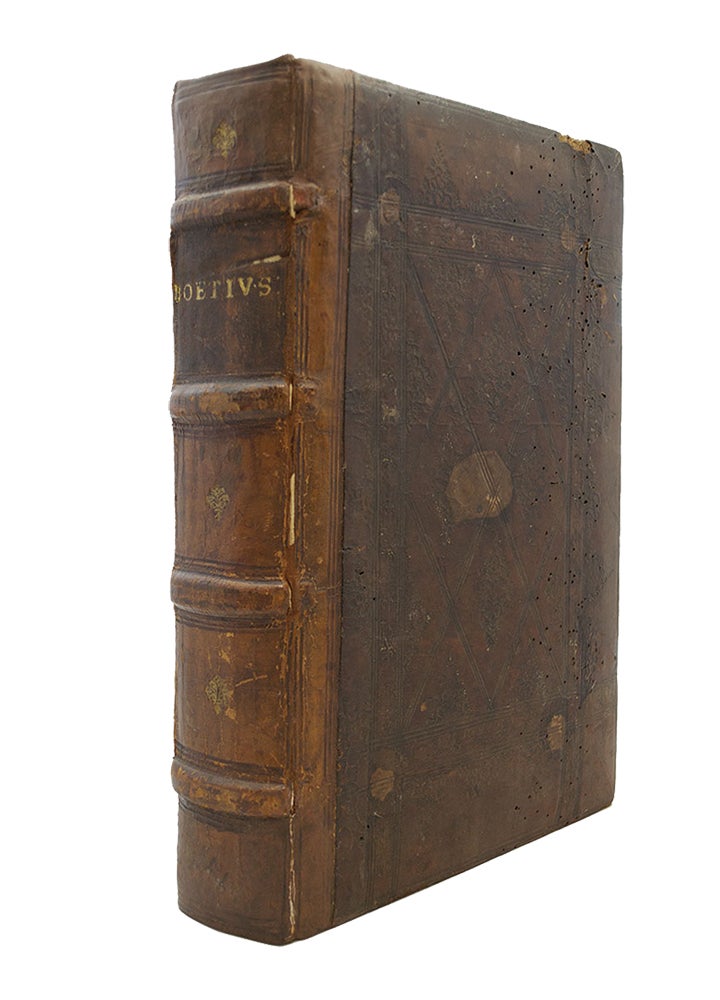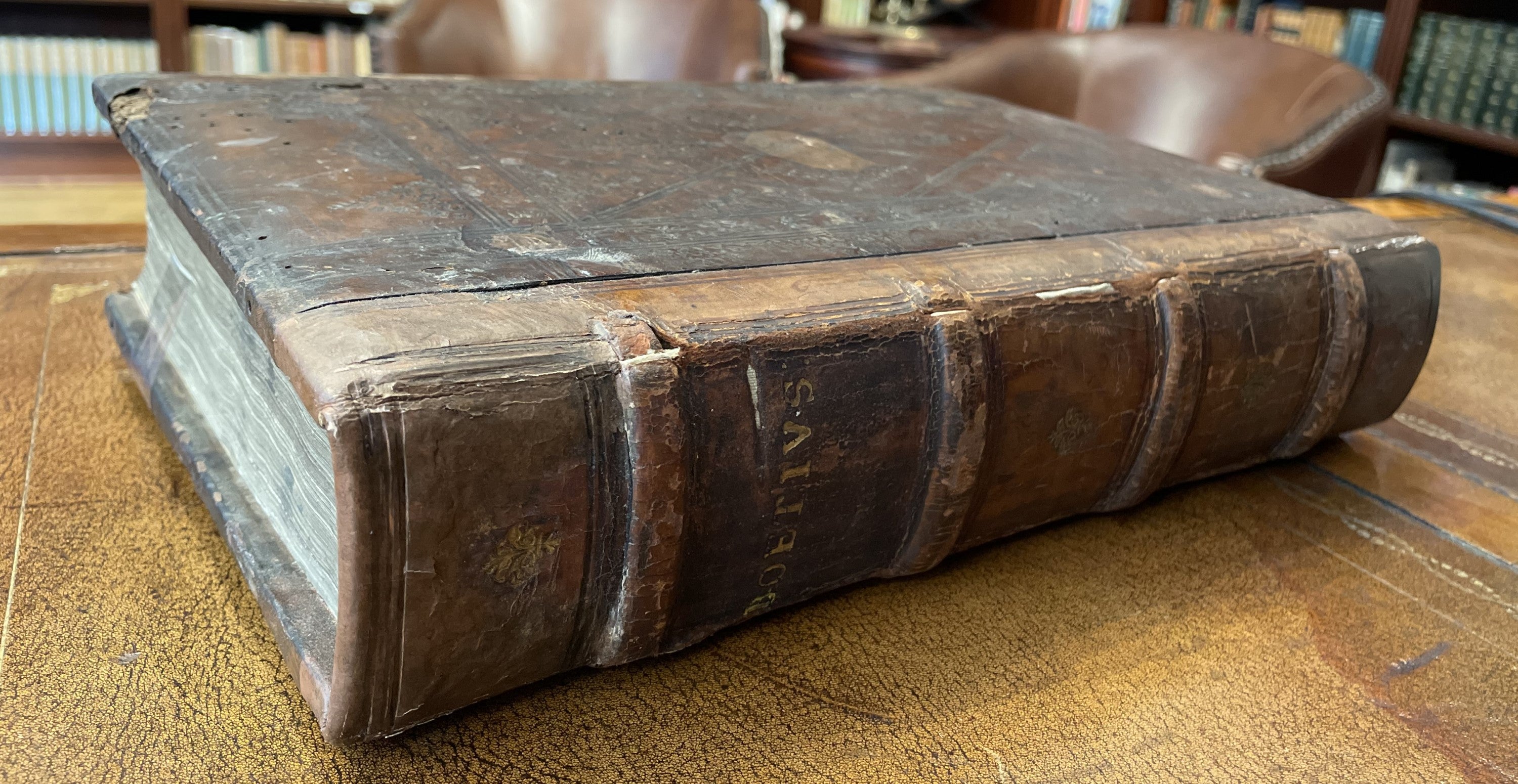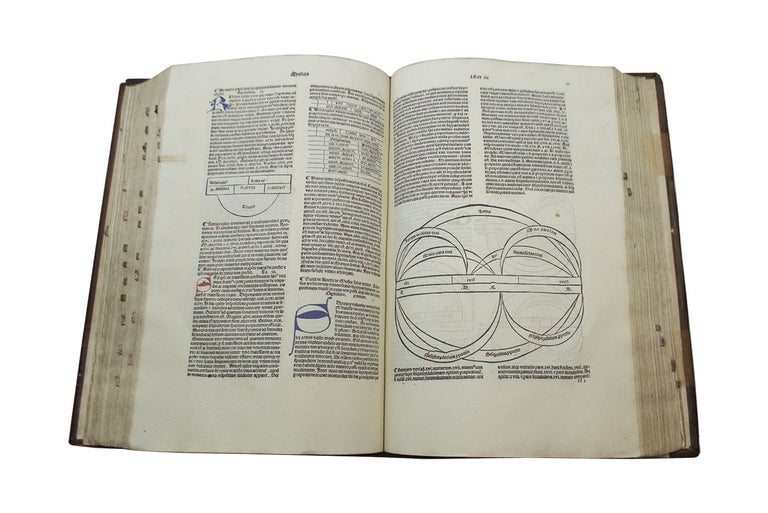Opera
Venice: Johannes and Gregorius de Gregoriis, de Forlivio, 18 August 1492; 26 March 1491.


Opera
Venice: Johannes and Gregorius de Gregoriis, de Forlivio, 18 August 1492; 26 March 1491. First collected edition. First collected edition of Boethius's works, including the first printing of De Institutione Musica. Also included in these collected works is his most famous work, Deconsolatione philosophiae. Complete in two folio volumes in one. 352 leaves in total. [2], 1-122, 127-158, 135-222; [4], 160-162, 162-250; 1-12 leaves. With numerous mispagination as usual. With the first part of Porphyry’s Isagoge (in Boethius’s translation) bound at the end from the time of binding, as indicated by the table contents annotated with pagination in a contemporary hand. Present copy with same number of leaves as Morgan library copy. Text in two columns. Leaf A1r printed in red and black. Numerous intitials between 3-lines and 11-lines in red and blue, and with red capital strokes. With numerous woodcut musical and mathematical diagrams. Contemporary calf over wooden boards, rebacked to style at an early date. Boards stamped in blind. Spine lettered in gilt. Leather index tabs. Boards a bit scuffed and chipped. A few wormholes to binding and some tiny ones in text. Three leaves with some staining along margin, due to rubricator's smudging. Previous owner's bookplate on front pastedown. Some minor contemporary marginalia. Leaf L3 of second book with some deleted manuscript notes to top margin. Overall an exceptionally clean and crisp copy. Housed in a custom clamshell with a morocco spine label.
"A stateman as well as a philosopher, Boethius was appointed Consul in Rome under Theodoric the Ostrogoth in 510. He was, however, accused of treason and his most famous work De Consolatione Philosophiae, was written while he was in prison at Pavia before being put to death. It was highly esteemed in the Middle Ages." (PMM 34). "Although there are allusions to music in several of his philosophical works, the core of Boethius's musical thought is found in his De Institutione Musica . There is no early separate edition of this treatise, but it is included in both the first (1492; offered here) and the second (1499) edition of his collected works. The importance of Boethius is twofold. This, though basically a synthesis, was the first work of musical theory written in the Christian West, and as such widely influenced musical thought right through the Middle Ages. It was the moral basis of his idea which gave them their novelty and their appeal.
PMM 34. (Item #4437)


